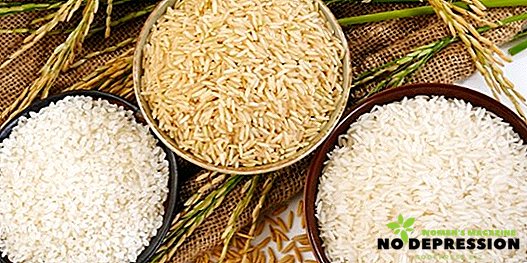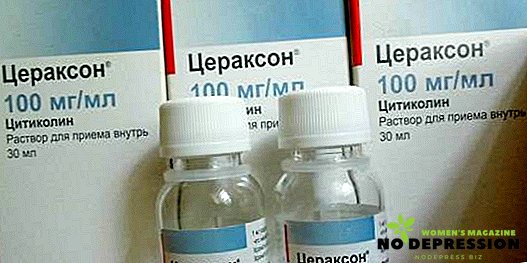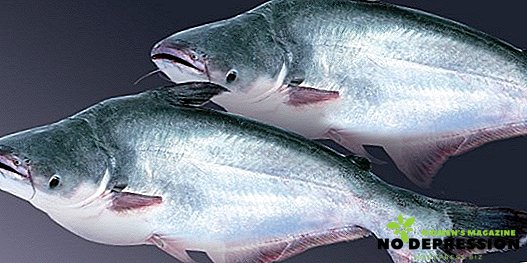Today, many people refuse to consume sugar, preferring natural or artificial sweeteners. However, it is important to remember that they can be equally harmful if consumed uncontrollably.
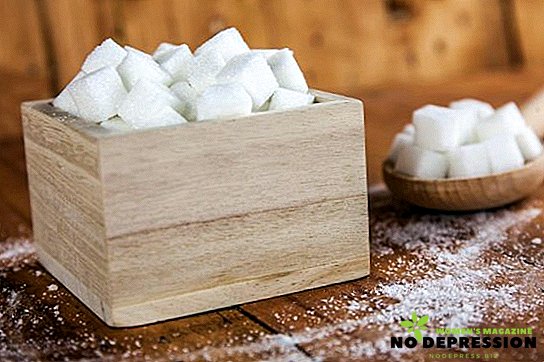
Essence and types of product
The need to replace the usual sugar has been around for a long time. It appeared due to the rather serious consequences of abuse of this food product. Excessive consumption of sugar can cause problems with vision, blood vessels, cause diabetes, liver disease, atherosclerosis. Even the benefits of sugar for the brain does not exceed all the shortcomings.
Despite a number of attempts to create a synthetic analogue of sugar, the substitute formula appeared quite by accident. This discovery belonged to the chemist Filberg.
When, after another search, he sat down at the table for eating, without having washed his hands, he discovered that they were sweet. He returned to the lab, repeated the experiment and recorded the proportions of chemicals. Today, the technology of creating artificial sugar is very well developed, which makes it possible to isolate sugar from plants, to create natural components by artificial means.
To classify sweet product substitutes according to different principles. There are, for example, very high-calorie sugar substitutes, which have almost the same energy value as sugar. As well as low-calorie, artificially made. The first group is usually attributed to fructose, isomalt, sorbitol. To the second - saccharin, aspartame, sucracite and so on.
Who is not recommended to use natural sugar substitutes
It is believed that they can be used even by children. If the norms of consumption are observed, then they bear no harm to the body. However, a pediatrician consultation in this case will not be superfluous. But with the synthetic variants of sugar substitute, the following groups of people should be more careful:
- Pregnant and lactating women. During this period, there is an active rebuilding of the body to the needs of the fetus, so it is not known whether the benefits from the consumption of such substances. For example, Aspartame in its composition contains two amino acids that can cause an imbalance in the work of internal systems and organs.
- People who have heart disease, you need to carefully use sugar substitutes, because the substances in their composition, can cause disruption of the heart.
- Individuals who have a neurological disorder, since artificial sweeteners can additionally overexcite the nervous system.
- Allergy sufferers. Even if a single intake of a sweetener or sweetener did not lead to a negative reaction, the toxic substance begins to concentrate in the body during the accumulation process, which can cause problems with breathing over time.
What to look for when buying a sweetener?
 The requirements for the selection of sweeteners do not practically differ from those that apply to other foods or additives. Before you buy products, you need to find out what is at the basis of the additive, its date of manufacture, shelf life, storage conditions, consumption rate, compatibility with other food products, possible adverse reactions during overdose.
The requirements for the selection of sweeteners do not practically differ from those that apply to other foods or additives. Before you buy products, you need to find out what is at the basis of the additive, its date of manufacture, shelf life, storage conditions, consumption rate, compatibility with other food products, possible adverse reactions during overdose.
Thus, the packaging of the sweetener should not be damaged. If you buy synthetic supplements, it is better to do it in pharmacies, and not in stores. In this case, the guarantee increases the quality of the product. In addition, it is recommended to consult with the attending specialist, especially if there are any chronic diseases so that the selected sweetener does not worsen the prognosis.
The main types of sweeteners
Even if you are not familiar with sugar analogues and have never bought them, this does not mean that you have never used them. The fact is that in the form of sweet additives, they may be present in various products of the food industry. In order to find out, it is necessary to determine which E code marks these additives and study the composition of the product being purchased.
Thus, natural sugar substitutes are considered safer and more beneficial. The newest artificial sweeteners are inferior to them only in calories, but at the same time, unscrupulous manufacturers, taking advantage of the ignorance of customers, often give out synthetic products as a herbal supplement. Therefore, it is important to know the types and names of the most popular sweeteners:
- Xylitol E967. Most often used for making beverages, chewing gum.
- Sorbitol E420. It is obtained from sorbitol and stone fruit.
- Isomalt E953. This product is synthesized with sucrose and has the properties of probiotics.
- Stevia This is an extract of the South American tree. It is considered the safest sugar substitute. But while its main drawback can be called not the most pleasant taste.
- Fructose. It is made from fruits and berries, it is considered the most high-calorie sweetener.
But there are also lesser-known natural sweeteners for sale, which are obtained from citrus peel, erythritol from melon, glycyrrhizin from licorice, aniline is a sweetener based on natural protein. Many of them are not common, firstly, because of expensive production, and secondly, because of the not fully studied effect.
The most famous artificial sugar substitutes include:
- Aspartame E951. It is considered the most inexpensive option.
- Acesulfame E950. Supplement with many contraindications.
- Saccharin E954.
- Sucrolase. A popular but questionable substitute, it is 600 times sweeter than sugar.
- Cyclamate E952. Ideal for making a drink.
Description of popular sweeteners and sweeteners
Fructose
Fructose is close to sugar in calories, but is absorbed a little slower. In the process of metabolism turns into glucose. Fructose is recommended to be taken only if there is no other alternative to sugar, and you cannot do without sweets. Fructose has a natural origin, but is not suitable for those who want to get rid of extra pounds. The advantage over natural sugar is a slower absorption.
Isomalt
This is a natural product that is obtained by fermenting sucrose. Isomalt is a natural component of honey and cane sugar. It has a natural origin, but is also not suitable for those who want to get rid of extra pounds. Slowly absorbed, does not cause an insulin surge.
Xylitol
Xylitol is a crystalline alcohol. Transparent sweet crystals are obtained from waste plant materials, corn stalks, wood, sunflower husks. Despite the high calorie content, it is slowly absorbed. In addition, the use of this sweetener has a positive effect on the condition of the teeth and gums. Xylitol is a product of natural origin. In small quantities, it may be suitable for those who want to lose weight. However, an overdose of xylitol can cause indigestion.

Saccharin
It is the first artificial sweetener. It is a colorless crystals that are poorly soluble in water. Saccharin is several times sweeter than sugar, does not contain calories. For example, on the basis of saccharin a drug such as Sucracite has been developed. It has a synthetic origin, suitable for those who want to get rid of extra pounds. It is believed that the use of this product can cause cancer. However, this hypothesis is not scientifically proven. At the moment, the drug is approved for use, it is widely used in food production.
Aspartame
Once in the body, as a result of its decay, methanol is formed. It is a chemical substance with a calorie content close to sugar. At the moment, no studies have been conducted that would reveal the harmful effects of this substance on the body. However, we must remember that methanol as a result of the decay of aspartame when released into the body is the strongest poison. The advantages include his, that it is suitable for anyone who wants to lose weight, because it requires very little for a sweet taste.
But due to the fact that when it is used in the body produces methanol, which is subsequently oxidized to formaldehyde, the nervous and cardiac systems can be affected. Therefore, it should not be used as an alternative to sugar. You should know that aspartame is contained in soda, chocolate, chewing gum.

Cyclamate
A chemical that has found its use in the production of carbonated beverages. Does not contain calories, is not absorbed by the body. At the moment, this substance is prohibited in America, because it can lead to a violation of fetal development in the fetus during pregnancy. Suitable for those who want to lose weight, because it does not contain calories in the composition. However, to use it on a regular basis is not worth it, so as not to harm the body.
Stevioside
It is obtained from the extract of the plant stevia. The substance has a weak herbal flavor, it dissolves in water within a few minutes. This sweetener contains few calories, but is suitable for weight loss. At the moment, there is no supporting data on the harmful effects of this sweetener on the body.
Sucralose
A relatively new sweetener, which was first obtained in the 80s. At the moment, any harmful effects on the human body during the use of this substance have not been identified. The additive is not absorbed. What makes it suitable for those who want to lose weight.
What to choose as a sugar substitute?
Sugar substitute is better to choose, taking into account the following recommendations:
- If you do not have extra pounds and you do not intend to lose weight, you can use both regular sugar and any natural sugar substitutes in a small amount.
- Substitutes are preferable because they are not absorbed by the body, which means that the glucose level does not rise too sharply.
- If you intend to part with excess weight, you need something not high in calories and not sweet, it is better to choose stevia extract or drugs, which include sucralose.
The main thing, before you add any food additive, it is recommended to familiarize yourself with the dosage and not to exceed it.
What is the use?
Sweeteners can harm health only if they are uncontrolled and unlimited use. Consuming in a reasonable amount, not exceeding the daily dose, you can not worry about your body. However, this rule still, rather, refers to natural sugar substitutes.
The positive actions of natural substitutes include:
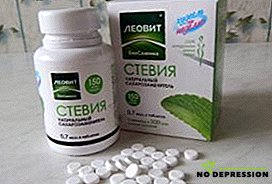 They help to reduce weight, keep it for a long time.
They help to reduce weight, keep it for a long time.- They do not affect the level of glucose in the blood, so they can be used by people who have diabetes.
- Natural sweeteners are different degrees of sweetness. Sweeteners that are considered intense, such as stevia, are an order of magnitude sweeter than sugar, and therefore they should be used in very small doses.
- Some sweeteners have preservative properties that allow food to remain usable for a long time.
- Reduce the risk of caries. Natural sweeteners actively counteract the microbes that destroy teeth, which contributes to their use in the composition of toothpastes. For example, xylitol and sorbitol have a beneficial effect on the condition of the teeth.
- Xylitol and sorbitol have a laxative effect, they are often used for constipation. The main thing is not to exceed the recommended daily dose.
Permissible Dose
Due to the low cost of synthetic sugar substitutes, they are widely used in various areas of the food industry. They are produced in the form of tablets, powders, dragees. Many seek to add them to any consumed drinks and desserts, although it is not recommended to do so.
Each sugar substitutes have their own daily intake and should not be exceeded:
- fructose - no more than 30 g per day;
- sorbitol is not more than 40 g;
- Stevia - not more than 35 g;
- xylitol is not more than 40 g;
- saralin - not more than 0.6 g;
- cyclamate - 0.8 g;
- aspartame - 3 g;
- Acesulfame - 1 g per day.
Is sweetener harmful?
The use of a sugar substitute can have the following side effects:
- weight gain, if sucrose and fructose are consumed in the same quantities as sugar;
- stomach upset;
- negative impact on the work of blood vessels and the heart;
- exacerbation of renal failure.
Some supplements are contraindicated for use in phenylketonuria - metabolic disorders. Ring sulphamides are prohibited for use during pregnancy and lactation. In addition, after extensive research, the carcinogenic effects of certain sugar substitutes, such as sodium cyclamate, saccharin, have been identified, which have been banned in certain countries.
Therefore, you need to choose an additive for yourself very carefully. In addition, synthetic sugar substitutes are not absorbed by the body, which is why they cannot be eliminated naturally.


 They help to reduce weight, keep it for a long time.
They help to reduce weight, keep it for a long time.